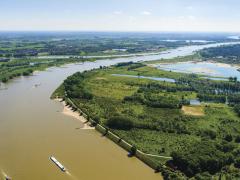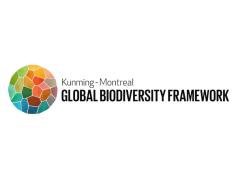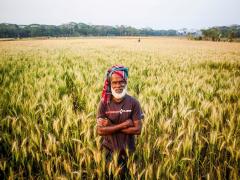A global public-goods perspective on the environment and poverty reduction: Implications for Dutch foreign policy
Climate change, overexploitation of fish stocks, land erosion and resource scarcities are examples of environmental issues that require globally coordinated solutions. This is in the interest both of developing countries and of the Netherlands. Only in a combined effort will developing countries be able to sustainably exploit their natural resources. Livelihoods may otherwise be at risk of disappearing, and conflicts over water, land or minerals are likely to increase. Internationally coordinated development cooperation that enhances sustainable use of natural resources may significantly contribute to poverty reduction. For the Dutch Government this requires the setting of priorities and collaboration with other countries, international organisations and the business sector. Coherence between development cooperation and other foreign policies would be necessary, for example, those on trade, agriculture and climate.
Global public goods
According to the Scientific Council for Government Policy (WRR), development cooperation should contribute to global public goods, such as a stable climate, sustainable fish stocks, sustainable forests, peace and security. The supply of these global public goods requires collaboration between countries. For example, measures taken by individual countries will not suffice to stop overexploitation of fish stocks. The Netherlands may contribute to global public goods by providing expertise, from a responsibility point of view, while also serving national interests. At the request of the Ministry of Foreign Affairs, the PBL Netherlands Environmental Assessment Agency has elaborated the implications of the WRR recommendation for foreign policies on the environment and poverty reduction.
Global environmental policy and poverty reduction
Where should the Netherlands contribute to solutions for global environmental issues and poverty? Four questions help to make policy choices:
- What is the impact of Dutch consumption and production on the environment and on poverty elsewhere in the World?
- Which Dutch expertise is available to tackle global environmental issues and poverty?
- What are the national interests in creating a sustainable global environment?
- What is the significance of environmental quality to poverty reduction?
Foreign policies need tailor-made solutions
International collaboration around the supply of global public goods requires a tailor made approach. The options for international regulation are limited. Moreover, differences in interests between stakeholder countries are huge, because of differences in welfare levels and environmental concerns, for example, between countries with and without tropical forests, or between those that import and export oil.
Solutions to the issues of governance are to be found in collaborations between countries, societal organisations and the business sector. Certain global issues, such as quality of the oceans or climate change, require broad collaboration. Others, such as global food production, could be approached more efficiently by an individual country or group of countries taking the lead. High-tech agricultural research, for example, could best be conducted by countries that can offer relevant expertise.
Foreign policies combine global and national interests
Global public goods require choices made in foreign policy. This relates to focusing on certain themes in development cooperation, and to attuning international and domestic policies. For example, climate change features high on the policy agenda, but objectives for biofuel production should not have adverse effects on food security. Furthermore, in a parallel approach, Dutch Government policy could focus on sustainable forest management in Latin America, while seeking to change national consumer and producer behaviour.
Foreign policies require collaboration and coherence
Another area of choice centres on the organisation of development cooperation. For example, it is important that agricultural EU policies are consistent with international policies to improve the world food situation. Likewise, international trade agreements should reinforce policies on poverty reduction. Finally, to achieve policy objectives on the environment and poverty reduction, government would benefit from including businesses and organisations and their global networks.
The options and choices show that public support of development cooperation could be expanded when successfully linked to the shared interest in a sustainable supply of global public goods.
More information
- Scarcity in a Sea of Plenty? Global Resource Scarcities and Policies in the European Union and the Netherlands
- Scarcities-and-Policies-in-the-European-Union-and-the-Netherlands. Other roles for governments needed in sustainable supply chain management?
- Meat, dairy and fish: options for changes in production and consumption
Authors
Specifications
- Publication title
- A global public-goods perspective on the environment and poverty reduction: Implications for Dutch foreign policy
- Publication date
- 16 June 2011
- Publication type
- Publication
- Publication language
- English
- Product number
- 92591




